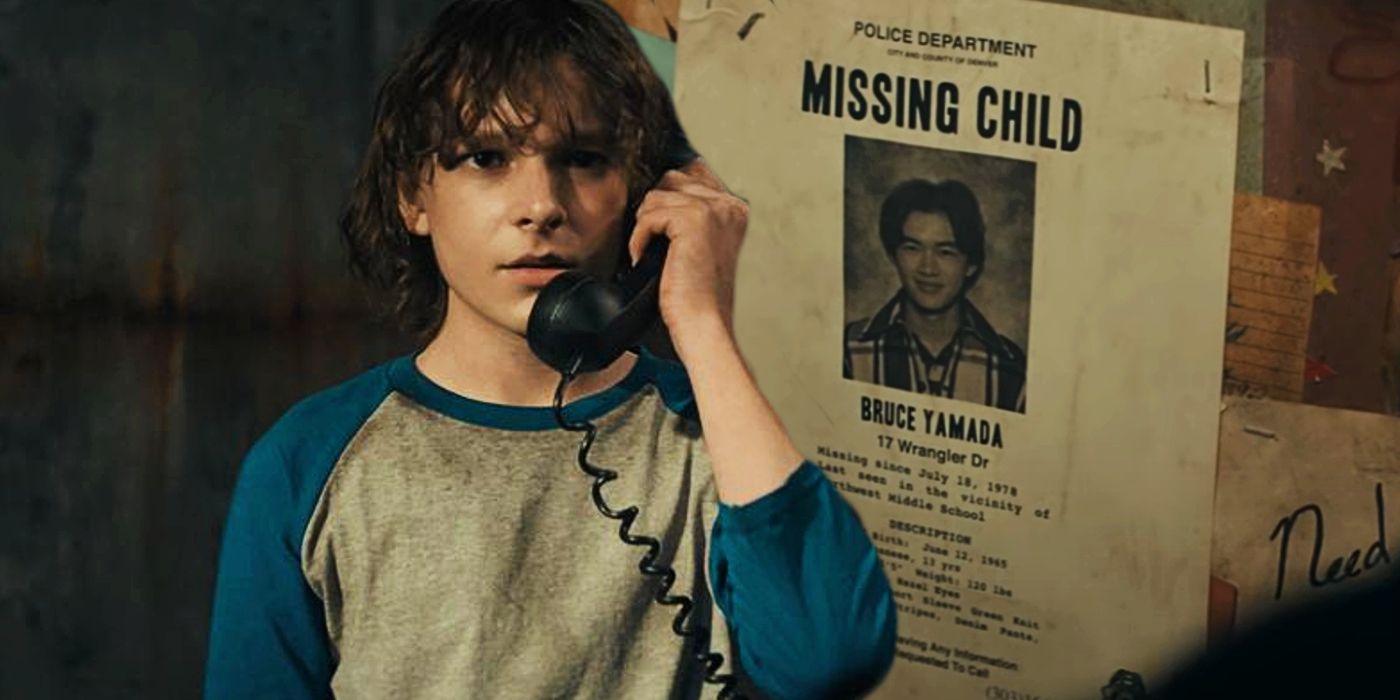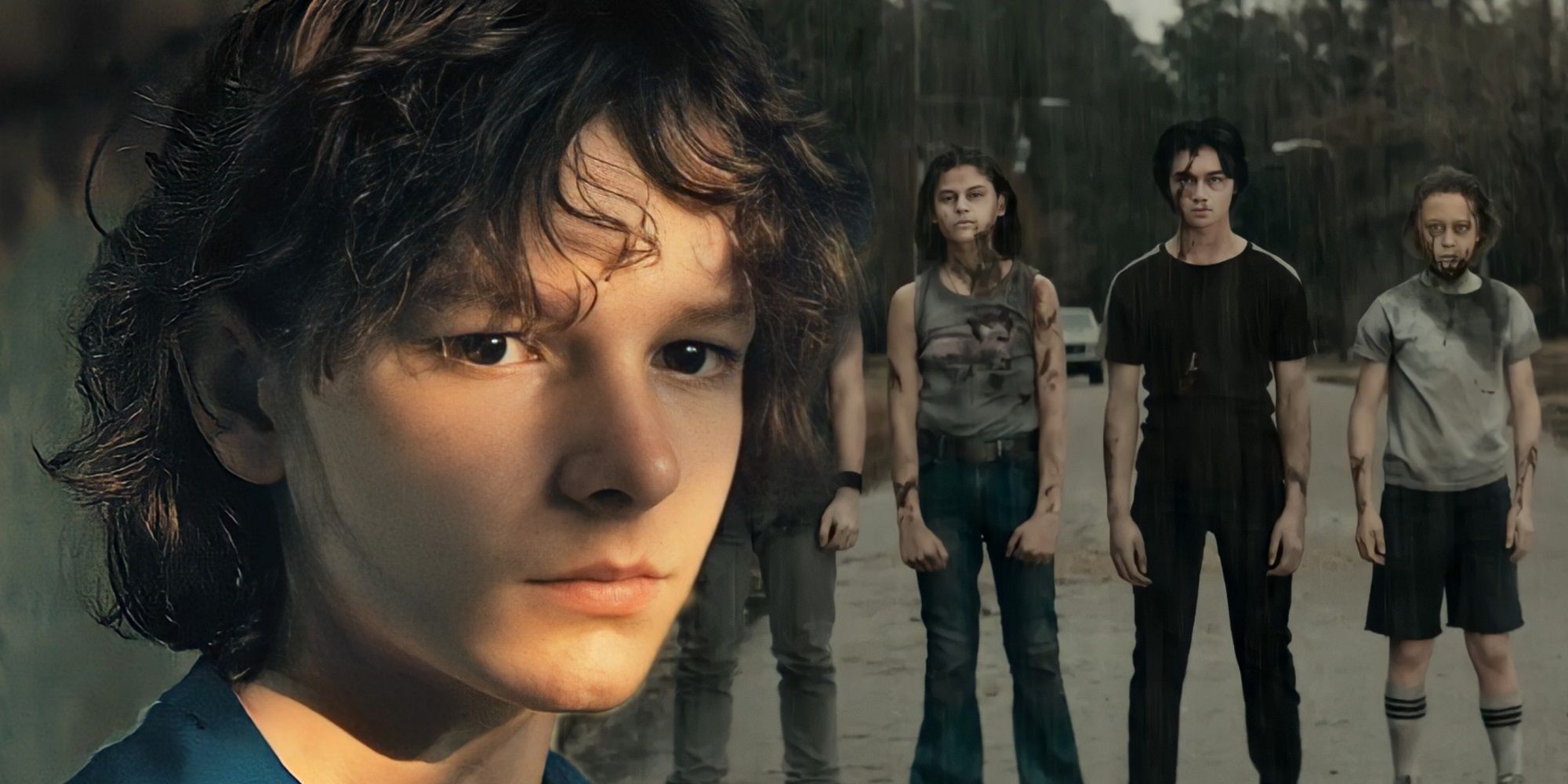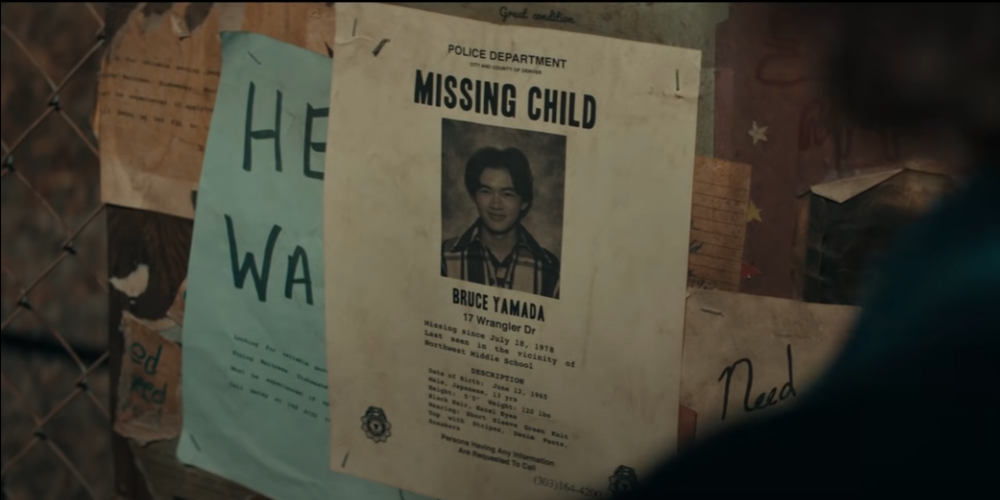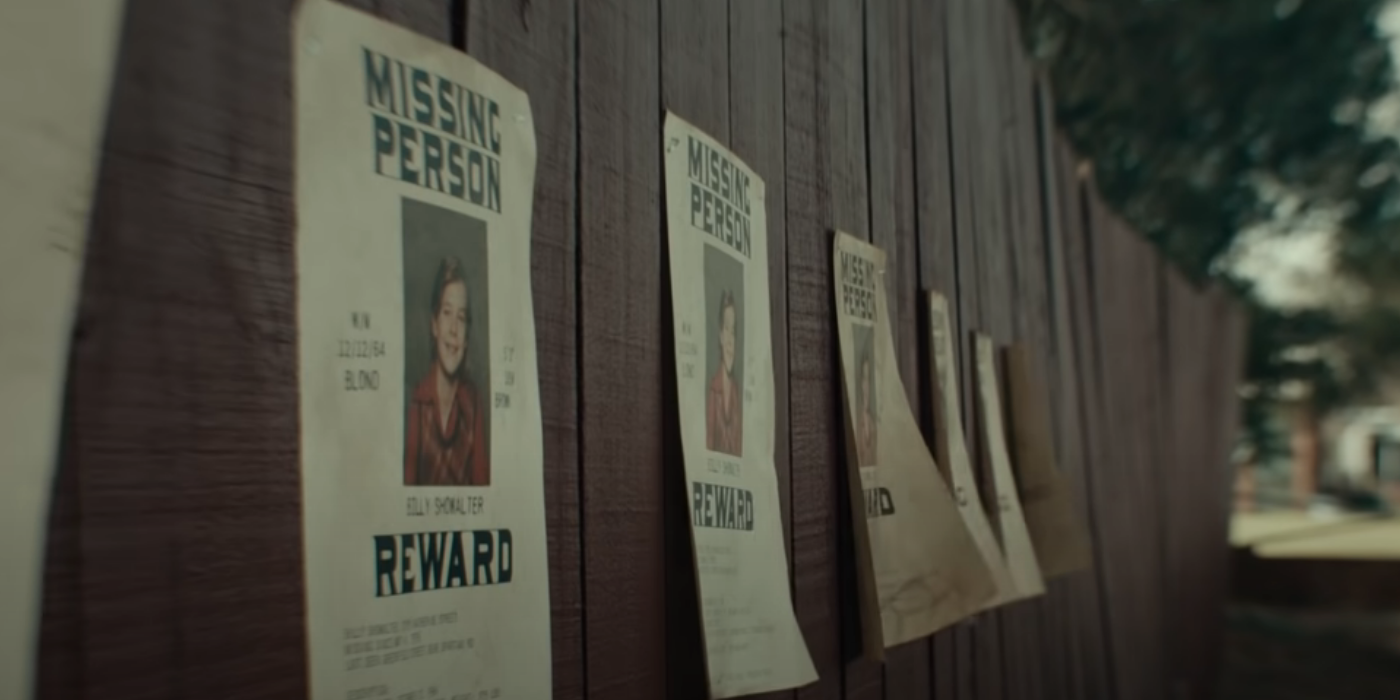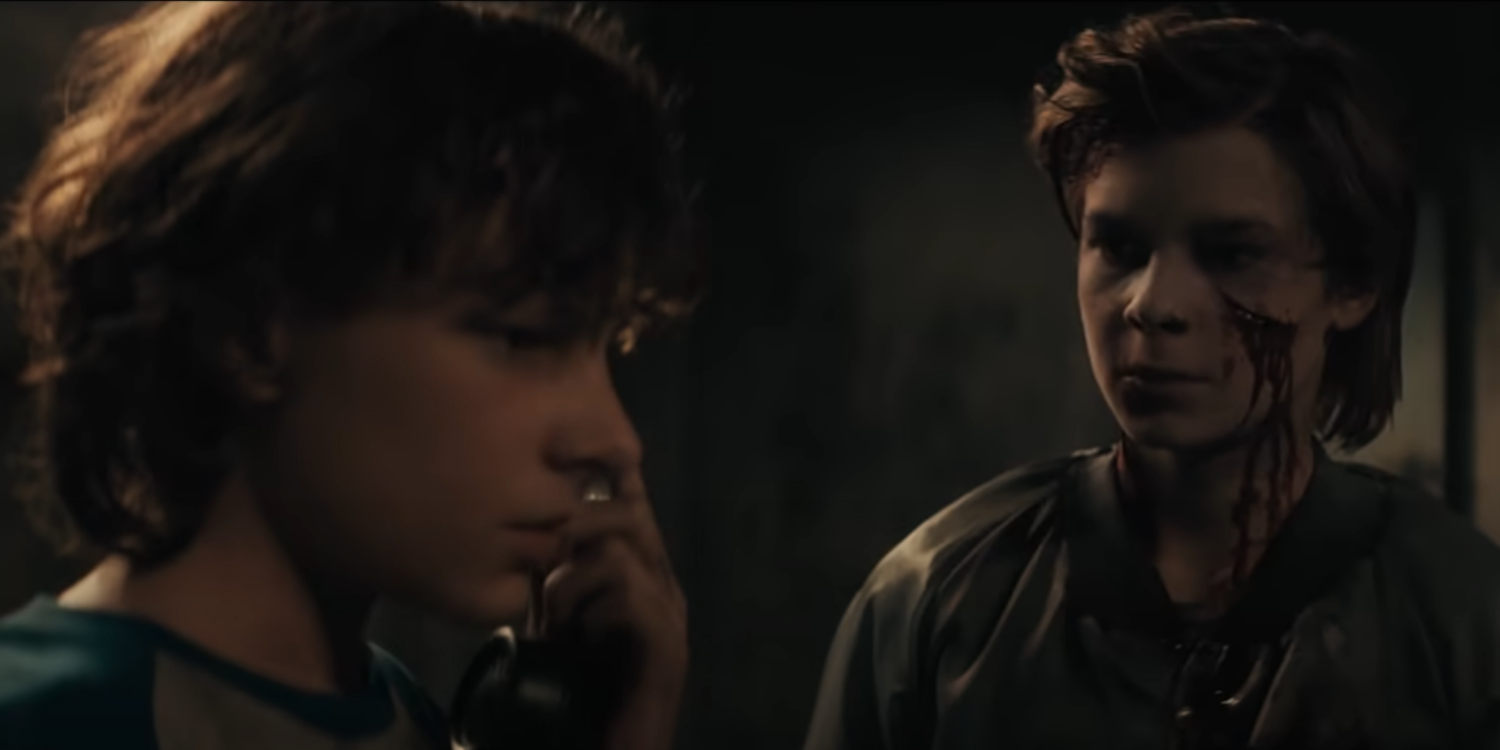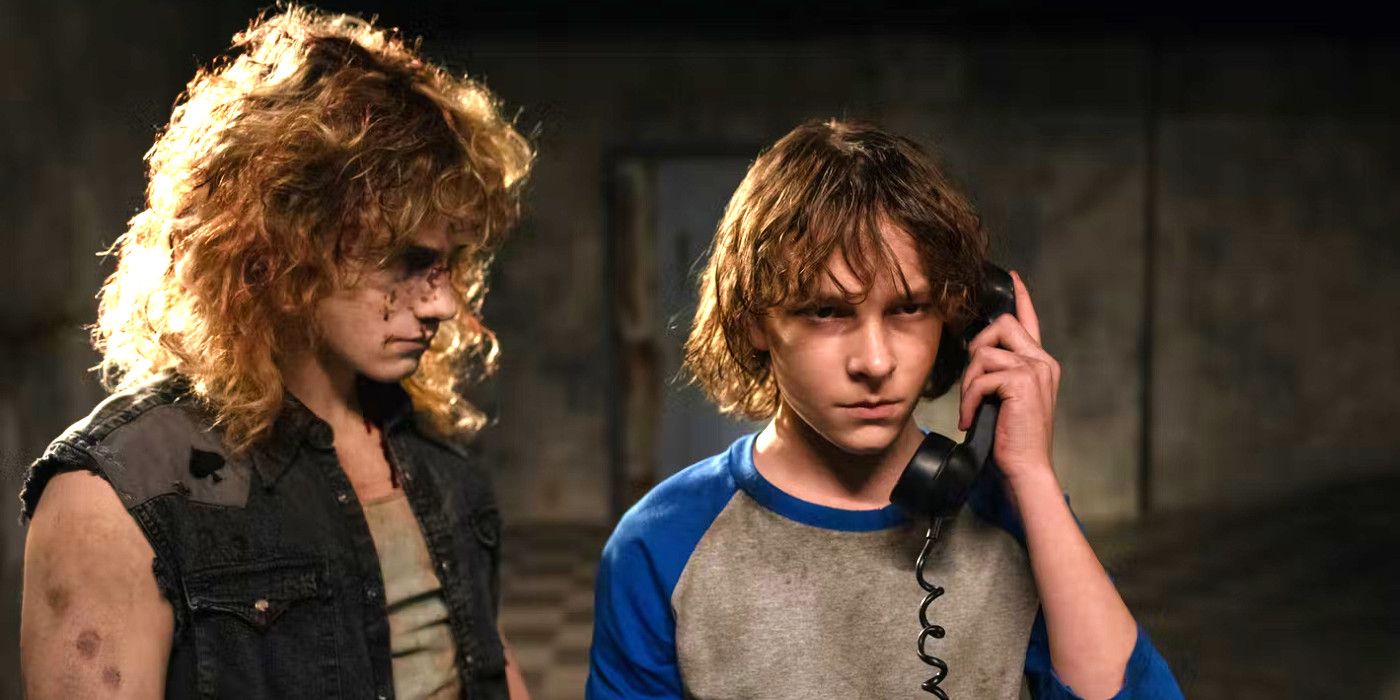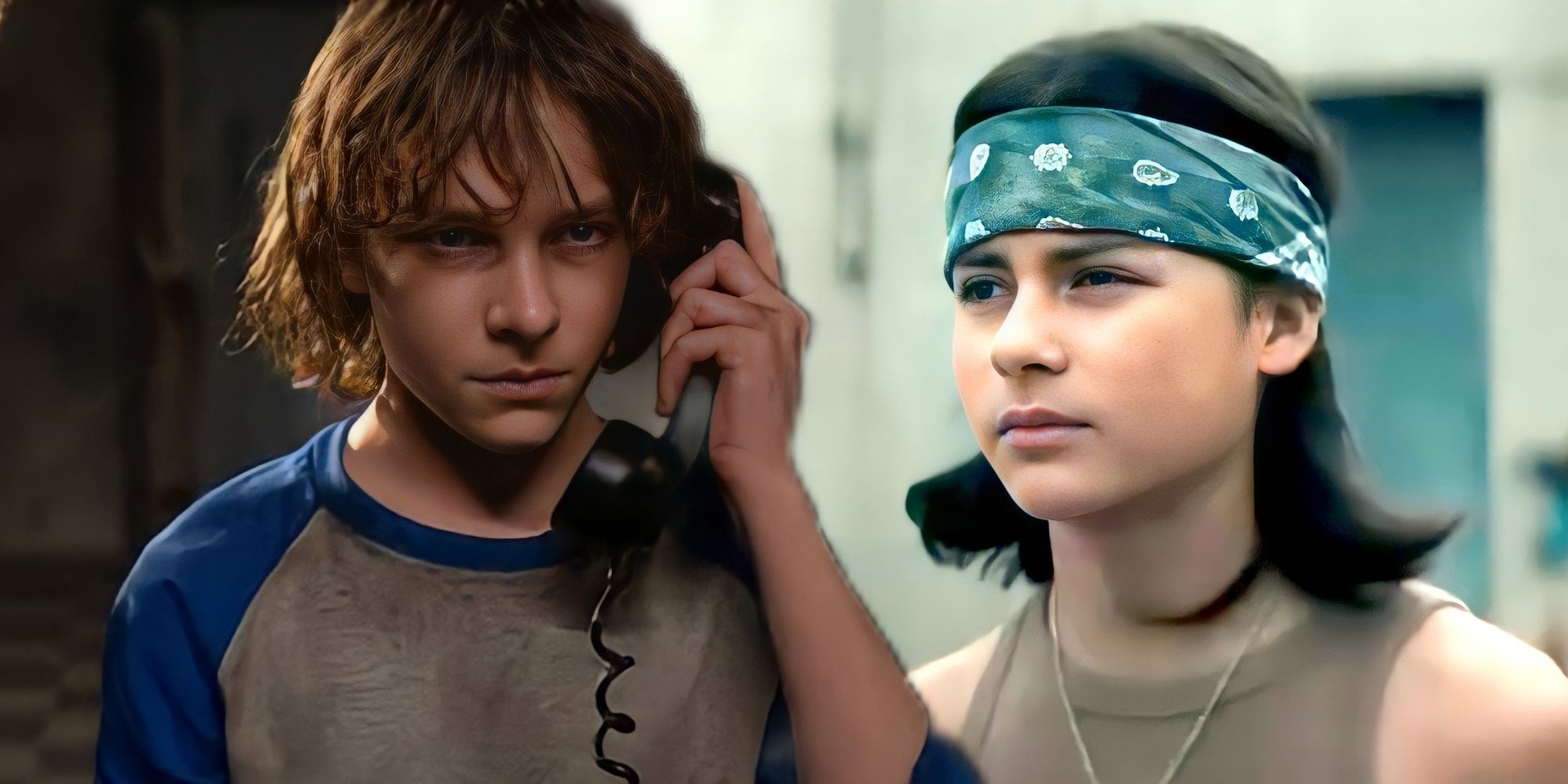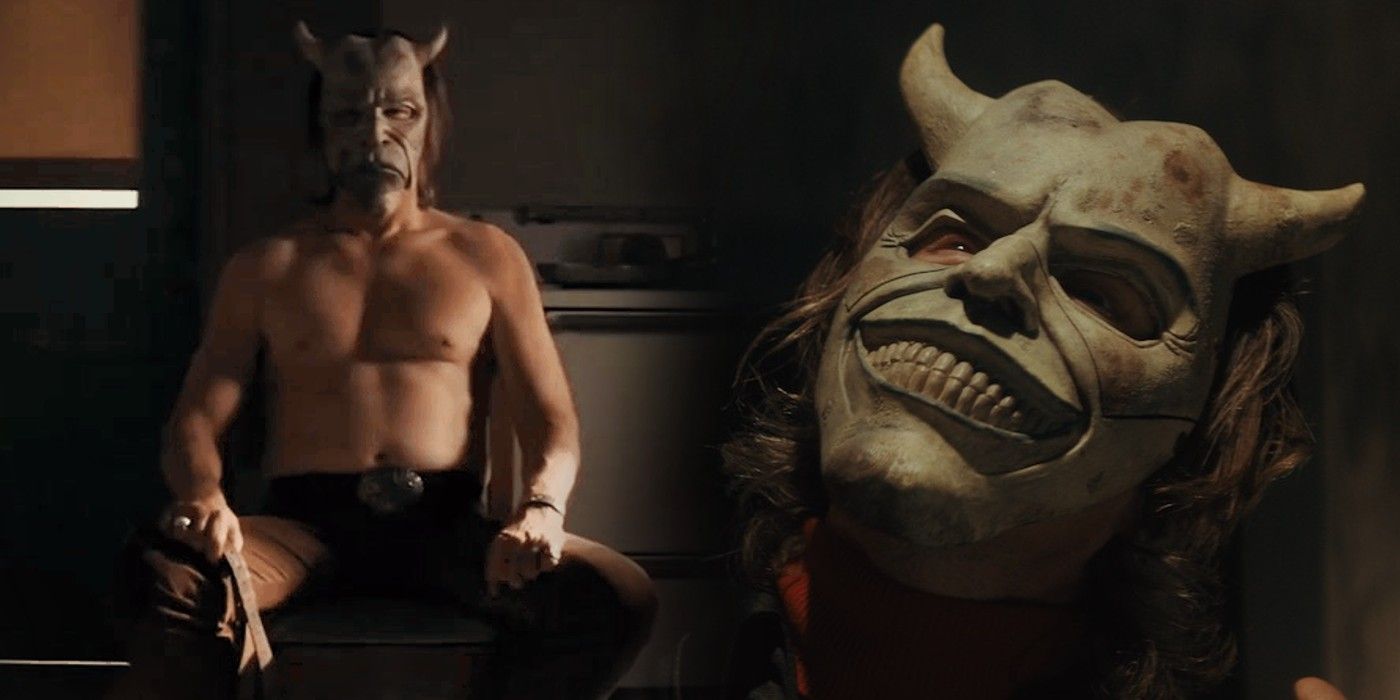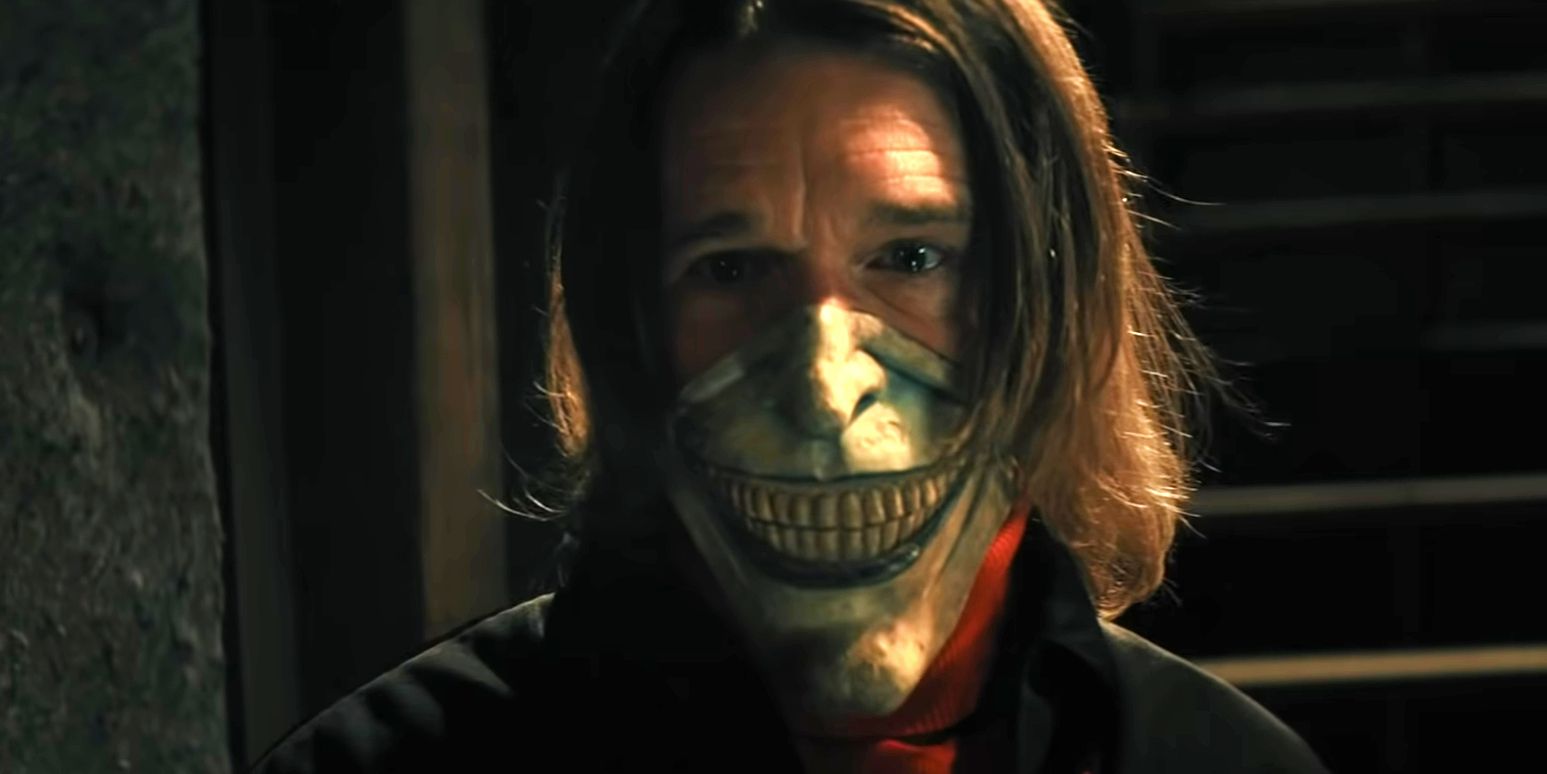In The Black Phone, The Grabber abducts six victims — here's a breakdown of who they are and everything the movie reveals about them. At the opening of The Black Phone, only three boys have been abducted by The Grabber, with abductions four and five quickly following, ultimately culminating in Finney being the final victim taken by The Grabber. Information surrounding these previous victims is communicated to the protagonist Finney through the titular phone, which sits in The Grabber's basement. Though The Grabber tells Finney the phone doesn't work, he begins to hear it ringing and, when he answers it, he hears the voices of The Grabber's former victims.
With their collective help, Finney is able to get the upper hand and kill The Grabber. While Finney is the protagonist of the movie, The Black Phone is almost more of an ensemble film because The Grabber's former victims play such a key role in his demise. The ending of The Black Phone makes it clear that Finney's success is a product of the other five boys' efforts to help him escape and stop The Grabber from hurting more innocents. Individually, each character doesn't have a lot of screen time, but their stories make up the bulk of the film, collectively. Here's everything The Black Phone reveals about The Grabber's victims.
Finney - The Protagonist
Finney (Mason Thames) is the main character of the movie and easily the character who gets the most screen time. Finney has a confidence problem, is bullied at school, and deals with an abusive alcoholic father at home. He's extremely close with his sister, Gwen, has a crush on a girl in his class named Donna, and pitches a mean baseball. Of all the victims, only Finney hears the Black Phone ring, and he's the only one to escape with his life.
Finney is able to kill The Grabber at the end of The Black Phone by making use of all the advice given to him by the five other boys who he talks to through the Black Phone. When he returns to school at the end of the film, he's undergone some catharsis and has become more confident. The bullies have disappeared, and he's able to talk to Donna, asking her to call him "Finn."
Bruce - The Baseball Rival
The Black Phone opens with Finney pitching against Bruce (Tristan Pravong) who is up at-bat. He strikes twice before hitting the ball out of the park and getting a home run. However, while he initially seems to be gloating, he proves that he is actually a good sport. When he and Finney shake hands after the game, Bruce tells him that he has "a mint arm."
The mask-wearing The Grabber takes Bruce sometime after the baseball game while Bruce is riding his bike. It isn't entirely clear how long The Grabber keeps him in his basement, but by the time he's able to call Finney on the Black Phone, he's lost a lot of his memory, not even being able to conjure up his own name. He keeps repeating his assertion that Finney has "a mint arm" and ends the call by telling him that there's a loose tile in the basement hallway that he should lift up and dig under.
Billy - The Paperboy
Not too much is revealed about Billy (Jacob Moran) in The Black Phone. He prefers to be called the paperboy as, like Bruce, he's lost his name. The Grabber took him while he was out delivering newspapers on his bike. Given that The Black Phone is an adaptation of a short story, many characters in the film don't appear in the original source, so it makes sense that not much is known of Billy. He reveals to Finney a hidden cord he can use to try and get up to the basement window by threading it through the bars that are attached there. He also warns Finney to not go upstairs when The Grabber leaves the basement door ajar, telling him it's a trap.
Griffin - The Escape Artist
Griffin (Banks Repeta) is the second victim to contact Finney and it is revealed that he was a paperboy who was taken by The Grabber while working his route. It is never revealed how Griffin is able to learn the combination to the padlock on The Grabber's front door but, afraid that he might forget it, he carves the numbers into a concrete wall in the basement. Griffin is one of the most helpful of The Black Phone's ghosts as he reveals to Finney that The Grabber has fallen asleep, and Finney has a chance to escape out the front door which nearly works.
Vance - The Bully
The Black Phone's Grabber isn't supernatural, but he's definitely super-violent and super-cruel. He plays games with his victims, finding ways to label them "naughty" so he can punish them as he sees fit. Vance (Brady Hepner) might have been the easiest victim of this list to call naughty: he was foul-mouthed, rude, and started fights at the drop of a hat. He was an angry kid who bullied others. Still, his aggression serves Finney well when he tells him about the hole he made in the wall across from the toilet in the basement. Learning that is one step closer to freedom for Finney.
Robin - The Best Friend
Finney has two friends in The Black Phone: his sister Gwen and The Grabber's fifth victim, Robin (Miguel Cazarez Mora). Robin sticks up for Finney and was also the toughest kid in school after Bruce was taken by The Grabber. He's the last victim to contact Finney through the Black Phone, and his advice is pretty simple: stand up to The Grabber and use the phone as a weapon. He gives him some fighting tips and a pep talk about how Finney could always take a punch.
Robin represents Finney's confidence. When he tells Donna to call him Finn, it's a name he wears as a reminder of what Robin called him. Robin believed in Finney when Finney couldn't — a cornerstone of their friendship. The Black Phone is a unique horror movie because of its focus on the victims of its villains. Part of why The Black Phone is getting such positive reviews is because of how it handles its themes of victimhood, violence against children, and standing up to aggressors. The Black Phone does an impressive job of highlighting not only its villain, but also his victims — and that makes for a fresh and interesting watch.
The Grabber Is Inspired By Many True Events
While The Black Phone isn't based on a true story, it is inspired by some very real events. The Grabber himself does draw certain serial killer parallels. Such as John Wayne Gacy, who dressed as a clown and often lured young boys to his home. Or even Albert Fish, who was also known for abducting young children. However, Ethan Hawke's killer isn't really based on a specific person, like how Texas Chainsaw Massacre's Leatherface is based on Ed Gein. Writer/Director Scott Derrickson reveals that the events of the film, despite being an adaptation of a short story, are actually based on real events he experienced while growing up (supernatural elements aside).
In an interview (via news.com.au), Derrickson spoke about his harrowing upbringing north of Denver, Colorado. The time in which he grew up was rife with conflict and a sense of unease, as it was right after the murders of Ted Bundy and the Manson family. He also mentions that at the time, there was a lot of bullying happening among children, and it wasn't uncommon to get beaten up or encounter physical violence at school.
Derrickson, director of several previous horror movies, recalls, "I grew up in an area of north Denver that was pretty violent, a lot of bullying, a lot of fighting, a lot of kids were bleeding all the time. It was also right after Ted Bundy had come through Colorado, killing people. And the Manson murders had just happened." This overwhelming sense of dread that seasons The Black Phone over the Grabber's hold on the town definitively parallels Derrickson's experience growing up in such a day and age.
In the same interview, Scott Derrickson also tells of a tragedy that happened with his next-door neighbor, "When I was eight years old, my friend next door came knocking at my front door and said, 'Somebody murdered my mum'. The mother of my friend next door was murdered. And there was a lot of domestic violence, even in my own home and in the homes of a lot of these kids that I knew."
Making The Black Phone reportedly helped Derrickson cope with his own past, and the blending of the short story with his own upbringing fostered a truly creepy and dread-inducing horror film. So, while there's no single event or serial killer that inspired The Grabber, the danger and misery he represents and is inspired by are very much real.
It's Unknown How The Grabber Chooses His Victims
Even with all The Grabber's victims in the movie identified, there is nothing that connects them or suggests a pattern to explain The Grabber's victims. In fact, the movie purposely reveals nothing about The Grabber, making him even more unsettling as a horror movie villain. The brief suggestion given about his life beyond being The Grabber is the fact that he lets his brother Max (James Ransone) crash at his house. However, any theory that this humanizes The Grabber evaporates when he kills Max without hesitation or emotion. While backstory and motivation can make villains more compelling, The Grabber feels like the embodiment of evil which adds to the terror of The Black Phone and makes Finney that much more of a hero for overcoming him.

